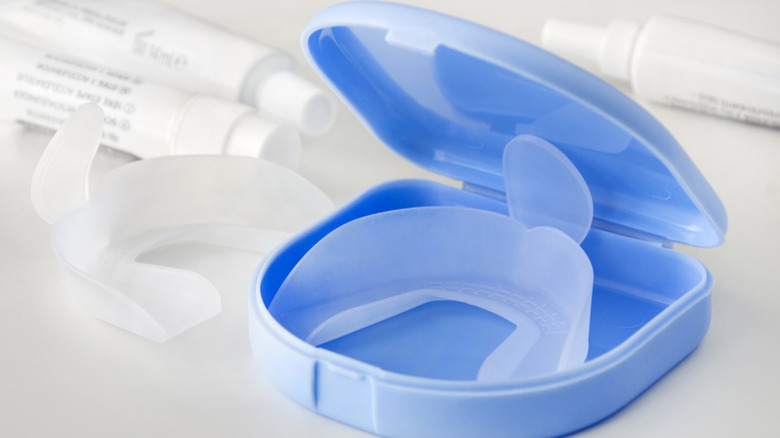You reach the end of a long day and all you really want to do is go to bed. You get dressed, brush your teeth, and finally reach for the night guard that stops you from grinding your teeth. That’s when it hits you. The smell. It’s been getting worse for weeks now. At first, you thought it was your breath or maybe your toothbrush. But one good sniff and you realize it’s your night guard. And that’s a problem.
Night guards can be expensive investments in your health, especially if they’re custom-made, explains Pro Teeth Guard. And like any good investment, they’ll last if taken care of properly. Unfortunately, the proper care and keeping of a night guard can be easy to overlook.
In fact, Pike Lake Dental Center features an employee who wears a similar oral device known as a splint. Despite working for a dental center, being married to a dentist, and being a long-time user of her device, she didn’t look up the proper care and cleaning until a patient came in concerned about a smell in their own oral device.
That odor, according to Pro Teeth Guard can also make your night guard taste bad, which probably doesn’t make it easy to use. Like most bad breath, that funk can be blamed on bacteria. But don’t reach for the antibacterial soap just yet, because using the wrong kind could damage your device.
Cleaning your night guard

The employee at Pike Lake Dental explains in her post that she would rinse her splint every morning and use her usual toothpaste to give it a weekly gentle scrub with her toothbrush. When she and her team went looking for answers for their concerned patient, however, they found that toothpaste can be abrasive to oral devices.
When properly cared for, oral devices can last around three years (per Pro Teeth Guard). And a key component to proper care is knowing which cleaners are safe to use. Keep in mind, experts advise against any cleaner with alcohol or bleach because these products can make the plastic more brittle, reducing its lifespan.
Instead, use denture cleaner along with white vinegar and baking soda. If desired, you can also use hydrogen peroxide. However, you don’t have to do this every night. These substances are needed only for a deep clean every one to two weeks.
Daily cleaning should be done with a dedicated soft-bristled toothbrush, according to Pike Lake Dental. Once the guard has been thoroughly rinsed in cool water, let it completely air dry. You can use this time to wash your guard case, in the same way, to ensure the bacteria doesn’t build up either.
Pro Teeth’s final suggestion is to regularly check your guard for damage. Cracks and other marks can harbor bacteria in hard-to-clean places, creating not only odor but a risk to your oral health, as well.